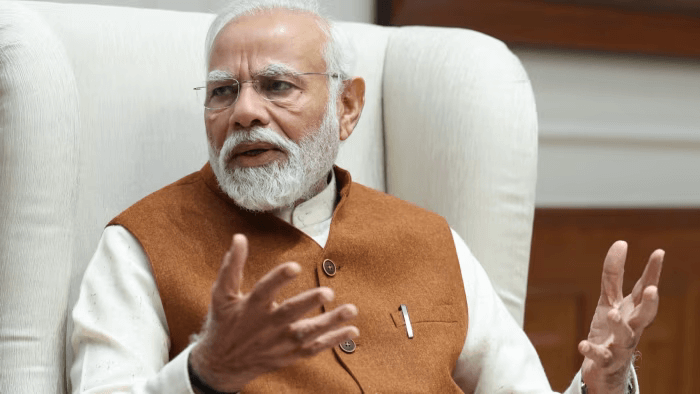In a first, during an interview with the UK-based daily Financial Times (FT), Indian PM Narendra Modi responded to the US allegations of Indian involvement in a foiled assassination plot against pro-Khalistan Sikh separatist leader Gurpatwant Singh Pannun.
Modi said that while India was ready to look into the matter, a “few incidents” like this would not derail the India-US ties.
India Will Look Into the Matter
“If someone gives us any information, we would definitely look into it,” Modi said on the allegations.
While saying that India is committed to the rule of law, he said, “If a citizen of ours has done anything good or bad, we are ready to look into it.”
India will look into US allegations that a New Delhi official was involved in the foiled assassination attempt of a Sikh separatist leader living in America, the nation’s Prime Minister Narendra Modi says in an interview with the Financial Times https://t.co/RxnWpP7sXt
— Bloomberg (@business) December 20, 2023
Modi also expressed India’s concerns about the activities of extremist groups based overseas. “These elements, under the guise of freedom of expression, have engaged in intimidation and incited violence,” the Indian PM held.
Era of Multilateralism, Absolute Agreement Not Necessary
The Indian PM said that security and counter-terrorism cooperation have been critical components of the India-US partnership.
On the impact of the allegations on the India-US ties, he said, “There is strong bipartisan support for the strengthening of this relationship, which is a clear indicator of a mature and stable partnership.”
“I don’t think it is appropriate to link a few incidents with diplomatic relations between the two countries,” the Indian PM said.
Modi said that the world is interconnected as well as interdependent. “We need to accept the fact that we are living in the era of multilateralism,” he highlighted.
“This reality compels us to recognise that absolute agreement on all matters cannot be a prerequisite for collaboration,” the Indian PM stated.
US Allegations
Last month FT had revealed that a US federal agency charged Indian national Nikhil Gupta with plotting the assassination of Pannun in tandem with an Indian government employee.
The US authorities said that they had “thwarted a conspiracy” and “issued a warning” to India over its involvement.
Gupta, who was charged with murder for hire and accused of agreeing to pay $100,000 to an assassin, was arrested by Czech authorities on 30 June. Subsequently, the US filed an extradition request with the Czech authorities.
The dispute is centred on Pannun, an American and Canadian citizen known for his fiery speeches against India. Designated as a terrorist in India in 2020, Pannun recently warned of a probable attack on the Indian Parliament before 13 December, the 22nd anniversary of the Parliament attack of 2001.
India’s Differential Treatment of Canadian and US Allegations
When, in September, Canadian PM Justin Trudeau accused the Indian government of being behind the killing of Khalistani leader Hardeep Singh Nijjar on Canadian soil in June, India refuted the Canadian allegations as “absurd” and “motivated.”
Following this, the ties between the two countries ebbed to a new low with the withdrawal of diplomats and cancellation of visa services.
Meanwhile, India’s reaction to the US allegations has been starkly different.
"There is also strong bipartisan support for the strengthening of the India-US relationship, which is a clear indicator of a mature and stable partnership," PM Modi told the Financial Times. #JoeBiden #NarendraModi #IndiaUS pic.twitter.com/wzifDeKZqN
— NDTV (@ndtv) December 20, 2023
Following the American allegations, India announced the formation of a high-level inquiry committee to look into the matter.
Modi’s assertion that the issue would have minimal impact on the ties suggests that India-US ties have strengthened considerably in recent times despite differences.
While US President Joe Biden cancelled his India visit scheduled for Republic Day and postponed the Quad summit against the backdrop of the allegations, the two countries continue to converge on China’s belligerent behaviour in the Indo-Pacific.

